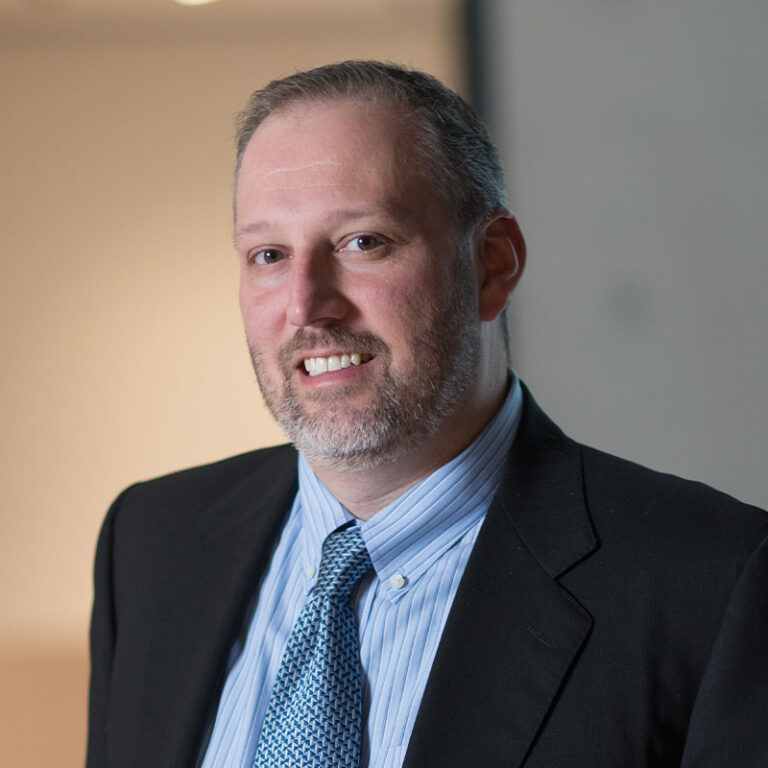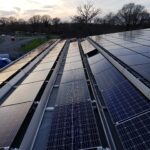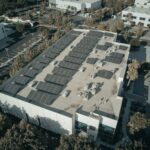
- Kim Kisner
- Business
- 05/30/2023
Michigan Saves’ Loan Criteria is Cash Flow, Not Credit Rating

In 2009, the State of Michigan created the nation’s first nonprofit “green bank” called Michigan Saves. The organization provides credit enhancements for credit unions and other lenders that reduce their loan default risk. In exchange, the lenders lower interest rates to help homeowners to pay for home improvements that reduce fossil fuel use, such as high-efficiency appliances like furnaces, central air, and water heaters. That means lower greenhouse gas emissions.
Fast forward to 2022 at which time Michigan Saves secured a $2.5 million loan from the Kresge Foundation and developed the Detroit Loan Fund, fundamentally changing the loan process to approve more loans for residents, and now nonprofits and small businesses in Detroit.
The fund eliminates credit scores as loan criteria, focusing instead on the borrower’s ability to make loan payments. In nine months, Michigan Saves through the fund has reached a $1 million milestone in loans.
SBN Detroit talked to Todd Parker, vice president for Michigan Saves, about how the fund benefits residents, nonprofits, small businesses, the economy, and the environment.
Q: How does this help nonprofits and small businesses in Detroit qualify for loans?
A: Yes, especially in today’s financial environment with rising interest rates because the program provides 7% fixed-interest-rate loans and, therefore, financial certainty.

The Detroit Loan Fund provides funding to Detroit nonprofits, community organizations, and small businesses for solar photovoltaic, battery storage, or electrification projects. The loans provide direct financial benefits in the form of utility savings and have longer terms than most commercial loans – seven to ten years. Customers may also be eligible for federal tax credits, which further improves the business case for the loan. In all, the loan provides great terms and affordable funding for those who have not been able to receive it before.
Q: Is this model of lending unusual?
A: Yes. Regarding the residential component, we are focusing on the ability of the loan recipient to pay, and not simply their credit score. Very few, if any lenders do this.
Commercial lending is more competitive. A 7% loan in this environment that does not rely on credit criteria is innovative. We tried to develop these programs to fill a market niche and do something other lenders are not.
Q: What was the path to creating these loans?
A: These loans were developed because we analyzed the loan application denial rate and saw that Detroit homeowners are denied twice as much as others in Wayne County. This systemic inequity has been baked into the credit process for years. We knew something had to be done. Detroit has been underserved for years and a loan product like this opens many doors for the betterment of the city. The concept could work statewide as well.
Q: Is the intention to go statewide with these loans?
A: If funding comes through yes, we’d like to expand statewide. Rolling it out in Detroit allowed us to test it, and it’s been very successful.
Q: From the residential perspective, how does assisting those who have been denied previously in getting loans for energy efficiency programs help the overall communities?
A: The program is designed to target customers who have the highest energy burden. Those who are paying the most for energy relative to their income. Old homes lack insulation and lack quality windows and high-efficiency heating and air. The loans allow people to reduce their utility bills but also improve the health and safety and comfort of their homes. Providing comfort and savings is our goal.
Q: It also helps the environment, yes?
A: Yes. It certainly helps reduce greenhouse emissions and the carbon footprint.
On the commercial side, the nonprofit and small business program targets solar PV (photovoltaic) systems, which allows them to generate energy and put it back on the grid as well as get bill credits, so there are environmental and financial benefits there as well.
Q: What are the criteria for accessing these loans?
A: The criteria are simple. Small businesses or nonprofits simply need to demonstrate they can pay by showing cash flow. We are less focused on traditional underwriting criteria. And more focused on a holistic view to make sure they have the means to repay.
Q: What else do we need to know?
A: The loan programs are contractor driven, meaning they are promoted through our network of authorized contractors. Also, we get referrals from utilities like DTE, community action agencies, or other community groups.
Ultimately the nonprofit or business will then enter into a direct relationship with the lender.

Q: How does the lending process with businesses impact nonprofits?
A: These types of measures are being heavily incentivized through the Inflation Reduction Act. It’s an exciting component for nonprofits, who don’t have to pay taxes and therefore cannot take advantage of tax credits. The IRA legislation changed the game by saying nonprofits are eligible for direct pay equivalent of a tax credit when they invest in solar PV or battery storage systems. This changes the financial picture and opportunities dramatically and provides a direct financial incentive for nonprofits.
Q: How do you see it impacting the future of Detroit and the economy?
A: Our funding will be exhausted this summer. If we get additional funding to continue the program, we will be able to help significantly more homeowners. Currently, we are already approaching 250 projects.
On the commercial side, once the federal government releases guidance and more funding, we expect nonprofits and businesses to package this funding with federal grants and tax credits to make the projects more financially attractive.
The loans also help customers deploy energy-saving steps, and therefore save on utility bills while potentially generating revenue from tax credits. These savings free them up to apply that money elsewhere and put them in a better financial position. This goes for both residents and businesses.
Also, we are working with Detroit-based contractors on installing these solar and energy improvements, so the money stays local.
Be sure to subscribe to our newsletter for regular updates on sustainable business practices in and around Detroit.
Kim Kisner
- All
- Business
- Community
- Education
- Events

Floyd, founded in Detroit in 2013, is a furniture company focused on creating modular, long-lasting pieces designed to reduce waste and rethink traditional home furnishings. Known for its clean, adaptable designs and commitment to sustainability, Floyd has grown from a single product to a full line of beds, sofas, tables, and storage solutions—all centered around durability and ease of assembly. SBN Detroit interviewed co-founder Kyle Hoff about how...

ZF Group, a global technology company with its North American headquarters in Northville, specializes in systems for passenger cars, commercial vehicles, and industrial technology. With a focus on next-generation mobility, the company develops solutions that address electrification, automation, and digitalization while aiming to improve safety, efficiency, and sustainability in transportation. SBN Detroit interviewed Anuj Shah, Sustainability Lead, for the Americas, to explore the most pressing environmental challenges in...

The Chip Bag Project, based in Detroit, is a sustainability initiative that upcycles hard-to-recycle snack packaging — particularly chip bags — into insulated sleeping bags for individuals experiencing homelessness. Founded by Eradajere Oleita, the project addresses both environmental waste and housing insecurity by transforming materials like Mylar into practical, thermally efficient solutions. In June, Oleita was among Trelllis’s 30 Under 30, its annual recognition of the brightest young...







